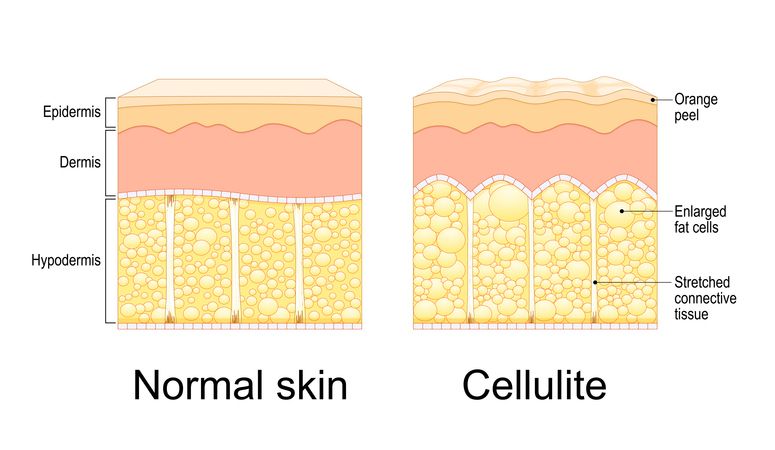Author: Natalie Ng|Updated: 30 April 2025
Think your skin is sensitive? It might not be as delicate as it seems. A lot of people confuse redness, itching, or breakouts with true skin sensitivity, but those symptoms can be caused by many things—like cold weather, harsh products, or even certain foods. Many believe natural products are always safer, or that sensitive skin means you're stuck with it forever. But skin sensitivity isn’t just about your skin type—it can affect oily skin, dry skin, or anyone with a weakened skin barrier. Things like UV rays, dry air, laundry detergents, and even your skincare routine can trigger irritation. Sometimes it's an underlying condition like rosacea or contact dermatitis. Other times, it’s just using too many products too fast. You don’t need fancy products or over-washing. A simple, gentle routine can help protect your skin and reduce reactions. Keep reading as we break down the biggest myths and what really helps sensitive skin feel calm and healthy.

Myth 1: All Skin Reactions Mean You Have Sensitive Skin
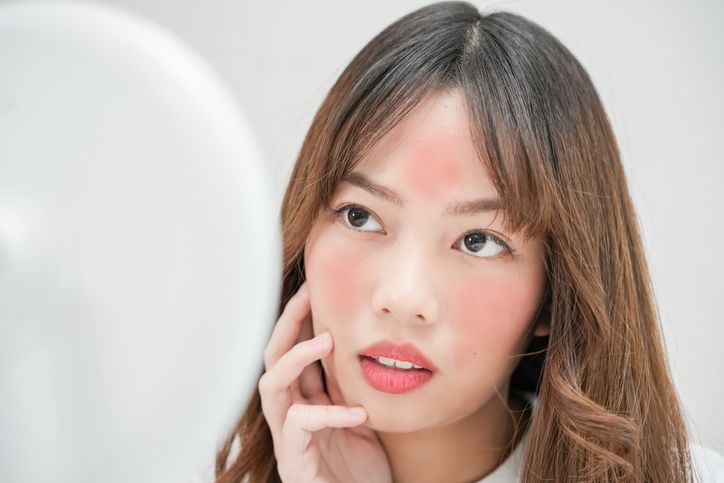
Not every reaction means your skin is sensitive. Many people confuse short-term irritation with a sensitive skin condition, but they’re not the same.
Reactions Can Happen to Any Skin Type
Trying a new product, facing cold weather, or using harsh laundry detergents can cause redness, itching, or burning—even if you don’t have sensitive skin. These skin reactions are usually temporary and linked to a specific irritant or situation.
What True Skin Sensitivity Looks Like
Sensitive skin symptoms usually show up often, not just once in a while. If your skin stings, burns, or feels irritated after using gentle skincare products or being exposed to cold temperatures, UV rays, or dry air—there may be an underlying cause. Common skin conditions like rosacea or contact dermatitis can make your skin more prone to this kind of response.
Watch for Patterns Over Time
Pay attention to how your skin reacts in general, not just after one bad experience. Consistent irritation, especially with fragrance free or gentle products, may signal a damaged skin barrier or ongoing sensitivity that needs extra care.
Understanding the difference helps you choose the right skincare routine and avoid unnecessary changes that could worsen your skin's condition.

Myth 2: Natural Products Are Always Better for Sensitive Skin
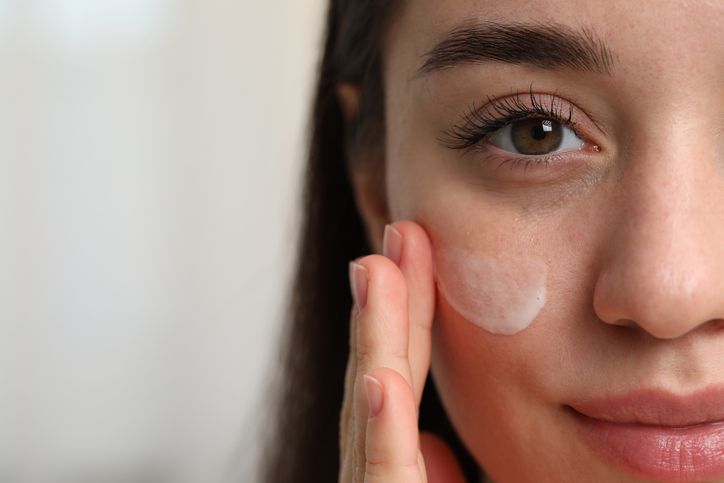
Many people think “natural” means safe—especially for sensitive skin. But that’s not always true. Some natural ingredients can be just as irritating as synthetic ones, and in some cases, even worse.
Natural Doesn’t Mean Non-Irritating
Ingredients like essential oils, citrus extracts, and botanical blends are common in natural products. But for sensitive skin, these can trigger redness, itching, or swelling. They’re potential irritants, just like synthetic chemicals. In fact, some of the most irritating substances—like poison ivy—are 100% natural.
No Guarantee of Safety or Testing
Natural skincare products often skip the same level of testing and quality control that standard, dermatologist-tested products go through. That means there’s a higher chance of inconsistent formulations and unpredictable results—especially for skin that's already prone to reactions.
What Actually Matters: How Your Skin Reacts
The most important thing isn’t whether an ingredient is natural or not. It’s whether your skin tolerates it. Sensitive skin varies based on your skin type, barrier health, and even your immune system. Always check labels, patch test new products, and go for fragrance-free options when possible.
If you have skin sensitivity or are prone to contact dermatitis, don’t assume “natural” is the better choice. Focus on what your skin actually needs—gentle, tested ingredients that protect your skin barrier and reduce irritation.
Read More
Book Now to Experience
Acne Treatment
1 Minute Self-Registration
Date should not be before minimal date

Myth 3: Sensitive Skin Is Something You're Born With
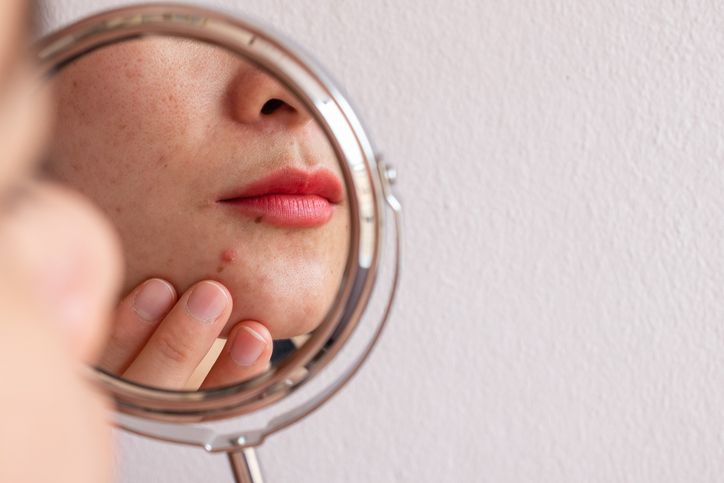
It’s easy to think you’re just “born with” sensitive skin—but that’s not always the case. While your genes can play a part, your skin’s sensitivity level often depends more on your environment and daily habits than your DNA.
Your Skin Changes Over Time
Sensitive skin isn’t a fixed condition. Your skin barrier gets stronger or weaker depending on how you treat it. Things like stress, sleep, and diet all impact how your skin reacts. Even cold weather, dry air, or certain foods can make your skin more irritated or inflamed.
Environmental Factors Have a Bigger Impact
Pollution, UV rays, harsh skincare, or strong laundry detergents are all common triggers for skin sensitivity. These external factors can weaken your skin’s protective barrier, making it more prone to redness, stinging, and swelling—even if your skin was fine before.
| Factor | Effect on Skin | How to Protect |
|---|---|---|
| UV rays | Inflammation, redness | Use sunscreen |
| Cold temperatures | Dryness, barrier damage | Moisturize |
| Air pollution | Irritation, oxidative stress | Use antioxidants |
| Dry air | Dehydration, tightness | Use a humidifier |
| Harsh chemicals | Burns, itching, flare-ups | Choose gentle, fragrance-free products |
You Can Improve Sensitivity
Even if your skin feels sensitive now, that doesn’t mean it always will. A consistent skincare routine, better sleep, less stress, and barrier-strengthening products can help reduce irritation over time. Sensitive skin symptoms vary based on your lifestyle—and you can take steps to calm them.
So no, you're not stuck with sensitive skin forever. How you care for your skin matters more than your genetics.

Myth 4: Expensive Products Are Best for Sensitive Skin

A higher price tag doesn’t always mean better results—especially for sensitive skin. Many believe that luxury skincare is gentler or more effective, but that’s often not true.
Price Doesn’t Equal Quality
Sensitive skin needs simple, non-irritating ingredients. Expensive products may come with fancy packaging or added fragrance, but they don’t always contain better ingredients. In fact, many dermatologist-recommended products are mid-range or budget-friendly.
| Price Range | What You Might Be Paying For |
|---|---|
| Expensive | Packaging, branding, unnecessary extras |
| Mid-range | Balanced formulas, tested ingredients |
| Affordable | Simple, effective, often fragrance-free |
Focus on the Ingredients
For sensitive skin, the ingredient list matters more than the brand. Look for calming ingredients like ceramides, hyaluronic acid, and niacinamide. Avoid potential irritants like alcohol, fragrance, and essential oils—regardless of how much the product costs.
Simple Is Often Better
Products with fewer ingredients tend to be gentler and easier for your skin to tolerate. A plain, fragrance-free moisturizer can do more for your skin’s health than an expensive cream filled with unnecessary additives.
Your skincare doesn’t have to be pricey to work. If your skin is prone to irritation, stick with gentle, tested formulas. Your skin barrier will thank you.
Book Now to Experience
Acne Treatment
1 Minute Self-Registration
Date should not be before minimal date

Myth 5: You Can't Use Active Ingredients on Sensitive Skin

Many people avoid active ingredients because they think they’ll trigger irritation. But sensitive skin can still benefit from actives—if you use them the right way.
Start Low and Slow
The key is to introduce active ingredients gradually. Use a low concentration and apply it just a few times a week to start. This gives your skin time to adjust without causing a reaction.
Good options for sensitive skin:
• Niacinamide: Calms inflammation and supports your skin barrier
• Hyaluronic acid: Boosts moisture without irritation
• Azelaic acid: Reduces redness and dark spots
• Mild vitamin C (like magnesium ascorbyl phosphate): Brightens with less stinging
Timing and Layering Matter
Avoid using strong actives together—like retinol and vitamin C in the same routine. That can overwhelm your skin and cause burning or stinging, even if you don’t usually react. Instead, space them out (e.g., vitamin C in the morning, retinol at night).
Always Patch Test First
Test a small amount on one area before using it on your whole face. If you don’t notice irritation after 24 hours, it’s likely safe to use more regularly.
With a careful approach, actives can help strengthen your skin barrier, improve moisture levels, and even reduce sensitivity over time. You don’t have to avoid them—you just have to use them smartly.

Myth 6: Fragrance-Free and Unscented Mean the Same Thing
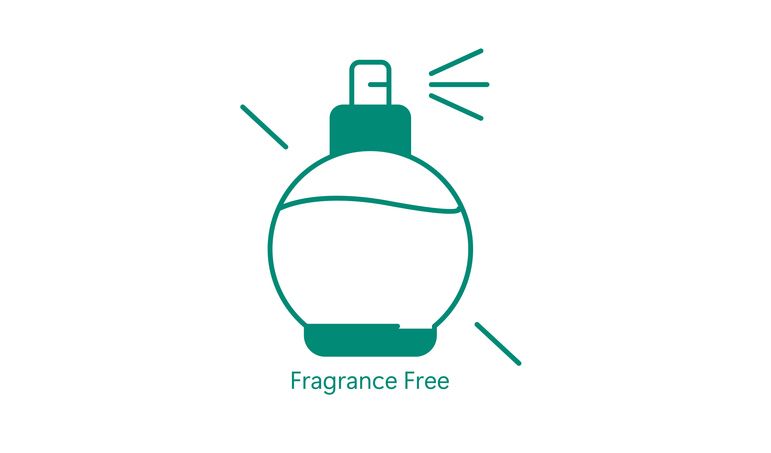
If you have sensitive skin, product labels can be confusing—especially when it comes to fragrance. Many people assume “fragrance-free” and “unscented” are the same, but they’re not.
What’s the Difference?
• Fragrance-free means no added fragrance—natural or synthetic.
• Unscented may still contain masking agents (a type of fragrance) to cover up the smell of other ingredients.
Those masking agents are often listed as “parfum” or “fragrance” on the label and can trigger skin reactions like itching, burning, or redness in sensitive skin.
Why It Matters for Sensitive Skin
If you have a compromised skin barrier or are prone to conditions like rosacea or contact dermatitis, even small amounts of hidden fragrance can cause a flare-up. That includes both natural fragrances (like essential oils) and synthetic ones.
Natural doesn’t always mean safe. Oils like lavender, peppermint, and citrus can cause inflammation or allergic reactions—even in “natural” or “organic” products.
Read the Label Carefully
Look for products that are clearly marked fragrance-free and double-check the ingredient list. If you see words like “aroma,” “essential oil,” “parfum,” or “fragrance,” it’s best to avoid it if your skin is sensitive.
Understanding this small difference helps you protect your skin and avoid hidden irritants that could lead to redness, itching, or swelling.
Book Now to Experience
Acne Treatment
1 Minute Self-Registration
Date should not be before minimal date

Myth 7: Sensitive Skin Needs to Be Washed Multiple Times Daily

Washing your face too often can actually make sensitive skin worse. Many believe that frequent cleansing keeps the skin healthy, but over-washing strips away the natural oils that protect your skin barrier.
Over-Washing Damages the Skin Barrier
Your skin's protective barrier helps lock in moisture and keep out potential irritants. If you wash too often—especially with hot water or harsh cleansers—you disrupt that barrier. This can lead to dryness, redness, inflammation, and more intense skin sensitivity symptoms.
How Often Should You Wash Sensitive Skin?
For sensitive skin, washing twice a day is enough—once in the morning, and once at night. If you sweat during the day, a rinse with cool or lukewarm water is fine, but skip extra cleansers unless absolutely needed.
• Use a gentle, fragrance-free cleanser
• Avoid foaming or alcohol-based formulas
• Stick to lukewarm water (not hot)
• Pat skin dry with a soft towel—don’t rub
Cleansing is essential, but doing it too often or using the wrong products can lead to irritation, swelling, and stinging sensations. Consistent, gentle care helps keep your skin calm and protected.

Myth 8: Hot Water Is Good for Sensitive Skin

Hot showers might feel nice, but they’re not great for sensitive skin. Many people believe hot water helps “open pores” or clean deeper—but all it really does is strip your skin of moisture and damage its protective barrier.
Why Hot Water Irritates Sensitive Skin
Hot water removes natural oils that keep your skin hydrated. Once those oils are gone, your skin dries out faster and becomes more prone to irritation, itching, and redness. For people with skin conditions like rosacea or eczema, hot water can trigger flare-ups and inflammation.
Signs the Water Is Too Hot
• Your skin feels tight or itchy after washing
• You see redness or swelling right after a shower
• Products sting more than usual after cleansing
What Temperature Works Best?
Stick to lukewarm water. It’s warm enough to clean your skin effectively but not so hot that it causes damage. Always follow cleansing with a gentle, fragrance-free moisturizer to restore hydration and support your skin barrier.
If your skin is prone to reactions, even small changes—like cooler water—can make a big difference. Keep it simple and kind to your skin.
Book Now to Experience
Acne Treatment
1 Minute Self-Registration
Date should not be before minimal date

Myth 9: Sensitive Skin Can’t Be Treated or Managed

Some people think sensitive skin is just something you have to live with—but that’s not true. While sensitivity might not disappear overnight, it can be managed with the right approach.
Triggers Can Be Identified and Avoided
Many sensitive skin symptoms are caused by exposure to specific triggers. These might include cold weather, UV rays, harsh ingredients, certain foods, or even stress. By paying attention to what causes redness, itching, or burning, you can adjust your routine to avoid those triggers.
A Gentle Routine Makes a Big Difference
Consistent care helps reduce irritation and rebuild the skin barrier. That means:
• Using a fragrance-free, non-foaming cleanser
• Moisturizing regularly with barrier-supporting ingredients like ceramides and hyaluronic acid
• Wearing sunscreen every day, even when it’s cloudy
• Avoiding products with alcohol, essential oils, or strong acids
Professional Help Can Support Progress
If your symptoms are severe or hard to manage, a dermatologist can help identify an underlying condition like rosacea, allergic contact dermatitis, or eczema. They can recommend treatments or medications to reduce inflammation and improve skin health.
Sensitive skin isn’t permanent or unfixable. With consistent habits and smart product choices, you can strengthen your skin barrier and calm irritation over time.

Myth 10: All Sensitive Skin Types React the Same Way

Not all sensitive skin is the same. People often assume that everyone with sensitive skin reacts the same way to the same products or triggers—but that’s not how it works.
Sensitivity Varies From Person to Person
One person might break out in redness after using fragranced products. Another might experience stinging from cold temperatures or irritation from certain foods. Skin sensitivity is influenced by skin type, genetics, environment, and lifestyle. That’s why what works for one person may not work for another.
Common Sensitive Skin Symptoms Include:
• Redness
• Itching or tightness
• Burning or stinging sensations
• Swelling or visible inflammation
• Skin reactions after exposure to UV rays, cold air, or chemical ingredients
Why It’s Important to Understand Your Skin
Knowing your personal triggers helps you build a routine that supports your skin—not someone else’s. For example, oily skin with sensitivity might need lightweight, non-comedogenic products, while dry sensitive skin benefits from heavier moisturizers and added hydration.
Don’t rely on one-size-fits-all advice. Sensitive skin comes in a range of types and symptoms. Paying attention to how your skin reacts—and adjusting based on that—is the best way to keep it healthy, calm, and protected.

Clearer Skin Without the Guesswork: A Targeted Acne Treatment for Sensitive Skin
Many people with sensitive skin are told to avoid active treatments altogether. But one common myth is that sensitive skin can’t handle professional solutions for conditions like acne, acne scarring, or textured skin. The truth? With the right approach, you can treat acne without causing further irritation, inflammation, or damage to the skin barrier.
That’s where New Beauty’s Acne Treatment comes in. Designed for people with sensitive, acne-prone skin, this treatment combines deep cleansing with hydration using dual spiral suction and drainage technology. It removes dead skin cells, oil, and bacteria from clogged pores—without harsh scrubs or ingredients that typically trigger skin reactions. It also infuses a medical-grade hydrating serum to restore moisture, calm redness, and support the skin's natural healing process.
How It Works
This treatment takes a 3-step approach:
1. Deep cleanse and exfoliate using gentle suction to clear blocked pores and remove buildup
2. Infuse hydrating serum directly into the skin, boosting moisture levels and balancing sebum production
3. Support skin repair and prevent future breakouts by promoting collagen growth and calming the skin
Why It Works for Sensitive Skin
• Non-invasive and gentle – no harsh peels or strong chemicals
• Helps restore the skin barrier and reduce sensitivity over time
• Soothes and hydrates, making it suitable for dry skin, oily skin, or mixed skin types
• No significant downtime—your skin looks refreshed, not inflamed
• Helps reduce dark spots, post-acne marks, and long-term skin conditions like hormonal acne
Whether you’re dealing with contact dermatitis, rosacea, or just easily irritated skin, this treatment can enhance the effects of your current skincare routine by creating a cleaner, more balanced base—without triggering sensitive skin symptoms.
If you're tired of breakouts and want smoother, calmer, more hydrated skin—book your Acne Treatment today
New Beauty's Acne TreatmentBook Now to Experience
Acne Treatment
1 Minute Self-Registration
Date should not be before minimal date
FAQ
Can Diet and Lifestyle Changes Help Reduce Skin Sensitivity?
Yes, your diet and lifestyle choices can substantially impact skin sensitivity. You'll see improvements by avoiding inflammatory foods like processed sugar and dairy while eating more anti-inflammatory options like leafy greens and omega-3 rich fish. Getting enough sleep, managing stress, protecting your skin from sun damage, and staying hydrated will also help reduce skin reactivity and strengthen your skin barrier.
How Long Should I Patch Test Products on Sensitive Skin?
Better safe than sorry when it comes to patch testing sensitive skin products. You'll want to test new products for at least 24-48 hours on a small area of your inner arm or behind your ear. If you don't experience any redness, itching, or irritation during this time, you can gradually introduce the product to your face. For extra-sensitive skin, extend the testing period to 72 hours.
Is There a Genetic Test Available to Determine Skin Sensitivity?
While there isn't a single genetic test specifically for skin sensitivity, you can get DNA testing that examines genes linked to skin characteristics. Tests like 23andMe or specialized dermatological genetic panels can identify markers associated with skin conditions, inflammation responses, and barrier function. However, skin sensitivity is complex and influenced by multiple factors beyond genetics, including environment, lifestyle, and hormones.
Can Seasonal Changes Affect Sensitive Skin Differently Than Regular Skin?
Yes, seasonal changes hit your sensitive skin harder than regular skin. You'll notice more intense reactions during weather shifts because sensitive skin has a weaker protective barrier. In winter, you're likely to experience more redness and irritation from cold winds, while summer's heat can trigger excessive flushing and breakouts. Your sensitive skin also reacts more strongly to humidity fluctuations and environmental stressors throughout the year.
Do Medications Affect Skin Sensitivity Levels Over Time?
Yes, your medications can substantially impact your skin's sensitivity levels. Both prescription and over-the-counter drugs may alter your skin's reaction to environmental factors. Common medications like antibiotics, blood pressure drugs, and retinoids can make your skin more photosensitive, while others might cause dryness or increased oil production. If you notice changes in your skin's sensitivity, don't hesitate to discuss these effects with your healthcare provider.
Recommended Articles
COPYRIGHT© NEW BEAUTY MANAGEMENT LIMITED 2026. ALL RIGHT RESERVED.

